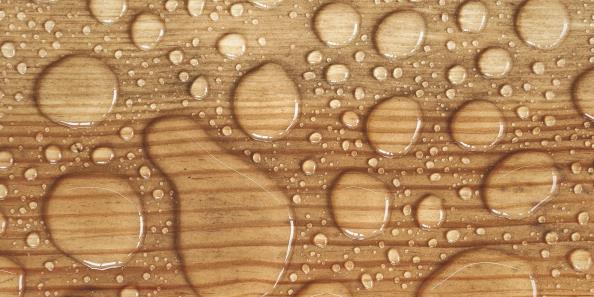
Technology
Polyisocyanates as raw materials for solventborne polyurethane coatings
Solventborne one-component (1K) and two-component (2K) polyurethane systems are used across a broad array of industrial applications, from automotive refinishes and coatings for aircraft or railcars, to plastics and corrosion protection, as well as wood and furniture finishes.
Featured Brands
- Polyisocyanate crosslinkers that enhance waterborne PU coatings
- Pre-polymers for more flexible epoxy coatings and tougher adhesives and sealants
- Polyisocyanates for a wide range of PU foams, coatings and adhesives
- A wide range of polyols for high-performance polyurethane applications
Polyisocyanates or NCO functional prepolymers used in formulation determine the specific properties of moisture-curing 1K coatings. Coatings based on aliphatic polyisocyanates, for example, usually need longer drying times than those based on aromatic polyisocyanates. Drying times depend on the presence of atmospheric moisture, as well as the temperature. One-component systems can generally cure at a wide range of temperatures. Coatings based on polyisocyanates or on NCO-functional prepolymers may harden at room temperature. Those based on blocked NCO prepolymers will require baking at temperatures up to 180°C.
Weathering properties of 1K coatings also largely depend on the isocyanate basis used. Coatings based on toluylene diisocyanate (TDI) or diphenlymethane diisocyanate (MDI) polyisocyanates have a tendency to yellow when exposed to light and display a certain loss of gloss with weathering. Those based on hexamethylene diisocyanate (HDI), isophorone diisocyanate (IPDI) and Desmodur® W (H12MDI) are light stable.
2K PU systems dry relatively quickly without exposure to heat due to their reactive NCO groups. In some applications, these systems are force-dried at up to 80°C or baked at temperatures above 120°C to yield even shorter curing times. This results in faster production cycles and increased efficiency.
Weathering properties of 1K coatings also largely depend on the isocyanate basis used. Coatings based on toluylene diisocyanate (TDI) or diphenlymethane diisocyanate (MDI) polyisocyanates have a tendency to yellow when exposed to light and display a certain loss of gloss with weathering. Those based on hexamethylene diisocyanate (HDI), isophorone diisocyanate (IPDI) and Desmodur® W (H12MDI) are light stable.
2K PU systems dry relatively quickly without exposure to heat due to their reactive NCO groups. In some applications, these systems are force-dried at up to 80°C or baked at temperatures above 120°C to yield even shorter curing times. This results in faster production cycles and increased efficiency.
Polyisocyanates and polyols produce high-quality PU coatings
Polyisocyanates and OH-functional polyols are the two core components that are reacted to create polyurethanes. These building blocks are used to formulate coating or adhesive systems and they can be precisely adjusted to the requirements of final products.
Aromatic polyisocyanates are well-suited for use in primers, adhesives and indoor applications, while aliphatic polyisocyanates are engineered for universal use. We offer variations of these components for almost every property profile and our products can be found in a variety of applications:
• Automotive OEM and refinishing
• Coatings for transportation vehicles
• Wood and industrial goods
• Construction coatings
• Coil and can coating
• Corrosion protection and plastics
• Construction coatings
• Reactive adhesives
• Textile coatings
Our products serve as crosslinkers for 2K solventborne PU coatings and adhesives; blocked polyisocyanates are crosslinkers for 1K PU baking coatings. These building blocks are used wherever crosslinking is required to achieve high resistance and reliable adhesion under various conditions. The innovative new pentamethylene diisocyanate (PDI) features a 70 percent carbon content from biomass without generating any direct competition for food production. PDI gives manufacturers access to a hardener component based on renewable feedstock and with an improved carbon footprint – an important differentiator. Additionally, our thermolatent crosslinker offers a significantly improved curing speed for 2K PU high-gloss coatings. Plastic parts can be cured at 80°C and as much as 30 percent faster while maintaining excellent visual results. This thermolatent technology allows more robust handling of plastic parts with freshly cured coating surfaces. In the longer term, the automotive industry will benefit from the ability to paint plastic, composite and metal parts on a single line.
Aromatic polyisocyanates are well-suited for use in primers, adhesives and indoor applications, while aliphatic polyisocyanates are engineered for universal use. We offer variations of these components for almost every property profile and our products can be found in a variety of applications:
• Automotive OEM and refinishing
• Coatings for transportation vehicles
• Wood and industrial goods
• Construction coatings
• Coil and can coating
• Corrosion protection and plastics
• Construction coatings
• Reactive adhesives
• Textile coatings
Our products serve as crosslinkers for 2K solventborne PU coatings and adhesives; blocked polyisocyanates are crosslinkers for 1K PU baking coatings. These building blocks are used wherever crosslinking is required to achieve high resistance and reliable adhesion under various conditions. The innovative new pentamethylene diisocyanate (PDI) features a 70 percent carbon content from biomass without generating any direct competition for food production. PDI gives manufacturers access to a hardener component based on renewable feedstock and with an improved carbon footprint – an important differentiator. Additionally, our thermolatent crosslinker offers a significantly improved curing speed for 2K PU high-gloss coatings. Plastic parts can be cured at 80°C and as much as 30 percent faster while maintaining excellent visual results. This thermolatent technology allows more robust handling of plastic parts with freshly cured coating surfaces. In the longer term, the automotive industry will benefit from the ability to paint plastic, composite and metal parts on a single line.
Blocked polyisocyanates for crosslinking solvent- and waterborne resins
Blocked polyisocyanates offer a broad formulation latitude for crosslinking solventborne and waterborne resins. When added to co-reactant resins, they yield 1K coatings with no limitations in working time. Upon baking, the components crosslink to films to create coatings which display high performance, durable hardness and adjustable flexibility. A blocked polyisocyanate is an isocyanate reaction product that is stable at room temperature but dissociates to regenerate isocyanate functionality when heated. Temperatures between 120° and 200°C are required to release the blocking agents, which usually volatilize from the coating. The resulting polyisocyanates react immediately with hydroxyl-containing compounds to form a polyurethane network. The dissociation temperatures of the labile bond of a blocked polyisocyanate depend mainly on the blocking agents used. Blocked polyisocyanates based on aromatic polyisocyanates dissociate at similar temperatures to those based on aliphatic polyisocyanates.Due to technical and economic considerations, blocked polyisocyanates are often ideal for heat curing coating systems that require:
• Exclusion of handling of free isocyanates
• 1K technology (no pot life)
• High performance of PU coatings quickly after cooling down (versus delayed development of properties over several days).
The key advantages include ease of handling, a broad range of baking temperatures and reduced sensitivity to atmospheric humidity. We supply blocked polyisocyanates and blocked prepolymers for high-performance PU coatings under the trade names Desmodur® BL, Desmocap® and Bayhydur® BL.
Blocked polyisocyanates offer a broad formulation latitude for crosslinking solventborne and waterborne resins. When added to co-reactant resins, they yield 1K coatings with no limitations in working time. Upon baking, the components crosslink to films to create coatings which display high performance, durable hardness and adjustable flexibility. A blocked polyisocyanate is an isocyanate reaction product that is stable at room temperature but dissociates to regenerate isocyanate functionality when heated. Temperatures between 120° and 200°C are required to release the blocking agents, which usually volatilize from the coating. The resulting polyisocyanates react immediately with hydroxyl-containing compounds to form a polyurethane network. The dissociation temperatures of the labile bond of a blocked polyisocyanate depend mainly on the blocking agents used. Blocked polyisocyanates based on aromatic polyisocyanates dissociate at similar temperatures to those based on aliphatic polyisocyanates.Due to technical and economic considerations, blocked polyisocyanates are often ideal for heat curing coating systems that require:
• Exclusion of handling of free isocyanates
• 1K technology (no pot life)
• High performance of PU coatings quickly after cooling down (versus delayed development of properties over several days).
The key advantages include ease of handling, a broad range of baking temperatures and reduced sensitivity to atmospheric humidity. We supply blocked polyisocyanates and blocked prepolymers for high-performance PU coatings under the trade names Desmodur® BL, Desmocap® and Bayhydur® BL.
Prepolymers: Flexible formulation, precise application
Prepolymers represent an intermediate level between traditional raw materials for polyurethane coatings, like diphenylmethane diisocyanate (MDI), toluylene diisocyanate (TDI) or hexamethylene diisocyanate (HDI)-based crosslinkers and the finished products after their stoichiometric reaction with OH-functional polyols. They can be formulated as 1K or 2K systems. As a 1K system, the product reacts after application with water from humidity, i.e upon exposure to ambient moisture. As a 2K system, it is used in much the same way as a conventional polyisocyanate to allow a more controlled reaction of the system due to the partial reaction of the isocyanate groups.
All our prepolymer products contain free isocyanate groups for use as NCO components in nonsolvent coating systems. We offer a unique product portfolio for the manufacture of high-quality polyurethane coating systems, including our industry-leading Desmodur® lines. Prepolymers in the Desmodur® E range are the reaction products of aromatic or aliphatic diisocyanates or polyisocyanates and polyols. They react to longer polymers with medium molecular weight and can be formulated to enhance elasticity or toughness, depending on their chemical structure.
Desmocap® prepolymers, meanwhile, are special products that can be used in combination with epoxy systems to create more elastic coatings. Their isocyanate groups are blocked to avoid immediate reaction with OH groups, but they react spontaneously with amino groups.
Prepolymers represent an intermediate level between traditional raw materials for polyurethane coatings, like diphenylmethane diisocyanate (MDI), toluylene diisocyanate (TDI) or hexamethylene diisocyanate (HDI)-based crosslinkers and the finished products after their stoichiometric reaction with OH-functional polyols. They can be formulated as 1K or 2K systems. As a 1K system, the product reacts after application with water from humidity, i.e upon exposure to ambient moisture. As a 2K system, it is used in much the same way as a conventional polyisocyanate to allow a more controlled reaction of the system due to the partial reaction of the isocyanate groups.
All our prepolymer products contain free isocyanate groups for use as NCO components in nonsolvent coating systems. We offer a unique product portfolio for the manufacture of high-quality polyurethane coating systems, including our industry-leading Desmodur® lines. Prepolymers in the Desmodur® E range are the reaction products of aromatic or aliphatic diisocyanates or polyisocyanates and polyols. They react to longer polymers with medium molecular weight and can be formulated to enhance elasticity or toughness, depending on their chemical structure.
Desmocap® prepolymers, meanwhile, are special products that can be used in combination with epoxy systems to create more elastic coatings. Their isocyanate groups are blocked to avoid immediate reaction with OH groups, but they react spontaneously with amino groups.
Polyols yield high-performance PU coatings
Our extensive product portfolio provides proven polyester, polyether and polycarbonate polyols for almost any requirement to enable the manufacture of dedicated, high-quality polyurethane coating and adhesive systems.
Desmophen® polyether and polyester polyols in combination with Desmodur® crosslinkers are used to formulate 1K and 2K PU coating systems. Polycarbonate diols from our Desmophen® C series can be used in combination with other polyols to adjust the properties of 2K systems. Polyurethane coating technology is used in a wide variety of coating applications, including:
• Automotive OEM finishes
• Transportation coatings
• Automotive refinishes
• Industrial coatings
• Plastic coatings
• Corrosion protection
• Wood and furniture finishes
• Structural protection
• Floor coatings
• Waterproofing membranes
Our extensive product portfolio provides proven polyester, polyether and polycarbonate polyols for almost any requirement to enable the manufacture of dedicated, high-quality polyurethane coating and adhesive systems.
Desmophen® polyether and polyester polyols in combination with Desmodur® crosslinkers are used to formulate 1K and 2K PU coating systems. Polycarbonate diols from our Desmophen® C series can be used in combination with other polyols to adjust the properties of 2K systems. Polyurethane coating technology is used in a wide variety of coating applications, including:
• Automotive OEM finishes
• Transportation coatings
• Automotive refinishes
• Industrial coatings
• Plastic coatings
• Corrosion protection
• Wood and furniture finishes
• Structural protection
• Floor coatings
• Waterproofing membranes






















